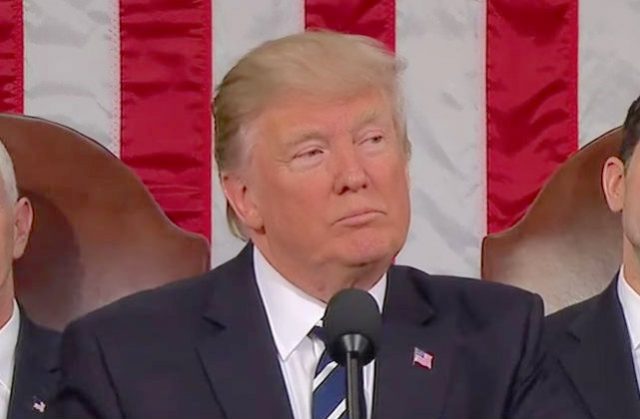 Last week, as legal experts were discussing James Comey’s surprise termination, the vibe was reserved-critical. Experts universally agreed that President Trump had undeniable legal authority to fire Comey “for any reason, or for no reason at all,” as Comey not-so-subtly hinted was the case in his letter to his colleagues). Sure, Trump’s obviously self-serving decision was unprofessional, unfair, and deeply troubling – but without more specific evidence that Trump’s motivation was nefarious, his decision wasn’t improper in any technical legal sense.
Last week, as legal experts were discussing James Comey’s surprise termination, the vibe was reserved-critical. Experts universally agreed that President Trump had undeniable legal authority to fire Comey “for any reason, or for no reason at all,” as Comey not-so-subtly hinted was the case in his letter to his colleagues). Sure, Trump’s obviously self-serving decision was unprofessional, unfair, and deeply troubling – but without more specific evidence that Trump’s motivation was nefarious, his decision wasn’t improper in any technical legal sense.
Today, though, things changed. The mood in the legal community has now ascended to Category One Sh-tstorm. Now, assuming (arguendo, of course) what James Comey told the New York Times is true, it looks like we’ve got some textbook-level obstruction of justice going on.
Let’s just take a quick look at that obstruction statute, shall we?
“Whoever corruptly, or by threats or force, or by any threatening letter or communication influences, obstructs, or impedes or endeavors to influence, obstruct, or impede the due and proper administration of the law under which any pending proceeding is being had before any department or agency of the United States, or the due and proper exercise of the power of inquiry under which any inquiry or investigation is being had by either House, or any committee of either House or any joint committee of the Congress—”
Legalese can be so cumbersome. Allow me to translate:
“When the President of the United States sends a letter that obviously influences, impedes and obstructs the FBI from continuing with a pending investigation,” that’s called “obstruction of justice.” And everybody knows it.
Three words. Obstruction. Of. Justice.
— Jeffrey Toobin (@JeffreyToobin) May 16, 2017
Yet another incredibly troubling report about @POTUS conduct. We need to appoint a special prosecutor, immediately. https://t.co/On6cvO0EwN
— Sen. Al Franken (@SenFranken) May 16, 2017
Just leaving Senate floor. Lots of chatter from Ds and Rs about the exact definition of “obstruction of justice”. https://t.co/zXj32i2x8b
— Chris Murphy (@ChrisMurphyCT) May 16, 2017
But we’re right back where we were, right? Obstruction is grounds for impeachment, but that impeachment may never happen at the hands of this Congress. And even if it did, the odds of a conviction are very slim for purely political reasons. Before we start rending our garments in frustration, let’s stop and remember that it’s 2017. It’s a new world, where anything is possible. Up is down, black is white, true is false. We’ve been operating under an ironclad premise that a sitting president is completely immune from criminal prosecution. Since Nixon, that’s been the rule, and no one has challenged it. Now, though, it’s time to dust off that assumption and see if it still seems as unquestionable as it did back in the 70s.
As it turns out, the issue of presidential immunity in U.S. v. Nixon was fully briefed and argued before SCOTUS, but never decided, because the case was decided on other grounds. At the time, James D. St. Clair was Nixon’s counsel, and Leon Jaworski was the Watergate special prosecutor. St. Clair wrote in his brief, ”It has never been seriously disputed by legal scholars, jurists, or constitutional authorities that a President may not be indicted while he is an incumbent.”
St. Clair was right. It never has been seriously disputed by anyone. But that sure doesn’t mean that it couldn’t be. St. Clair had two main arguments for presidential immunity: 1) because the entire power of the executive branch vests in the president alone, it’s ridiculous to think he could be subject to prosecution; and 2) because the Constitutional provision on impeachment specifically says that an impeached official is subject to prosecution after removal from office, the framers must have meant that those officials couldn’t be prosecuted before they were removed from office.
While those are certainly reasonable arguments, they’re not even close to air-tight. The president might be the chief executive, but he’s not running the branch by himself. He has a large cabinet and extensive staff to assist him. It might be wildly inconvenient for a president to fend off criminal prosecution during his term, but Trump himself has bragged that he could continue running his businesses in tandem with running the country. For such a master multitasker, what’s a little prosecution thrown into the mix?
On the second argument, I’m going to go with what Leon Jaworski said in his brief — that the reference to timing was simply the framers’ way of insuring that an impeached official could not raise a double-jeopardy objection to a subsequent prosecution. Jaworski also noted that the sentence applied to all officials who are subject to impeachment, not just to the President. I think we’re pretty clear that officials who are not the president can definitely be prosecuted; therefore, it’s not really logical to conclude that the clause prohibited any prosecution, much less specified that there are special rules for the president.
Where does that leave us? It’s simple. Trump likely committed obstruction of justice. The shortest distance between the #ComeyMemo and a Trump-free White House is a criminal prosecution. Forget 2018, forget political games and alliances. Criminal conduct warrants criminal prosecution. Blanket executive immunity may have made sense in the 70s, but like brown plaid and avocado-green appliances, it just doesn’t fit in 2017.
This is an opinion piece. The views expressed in this article are those of just the author.